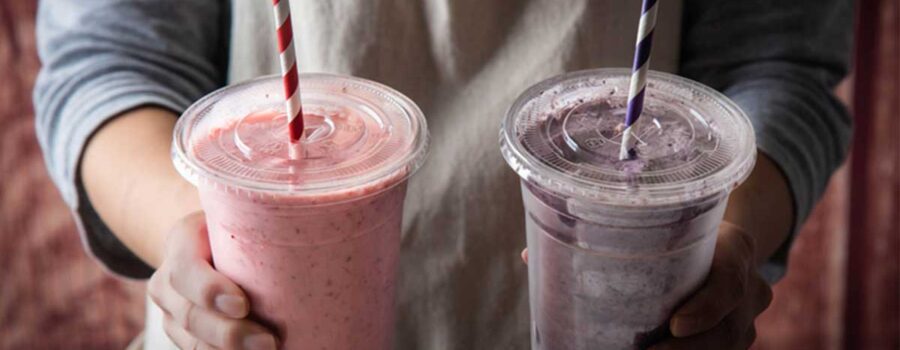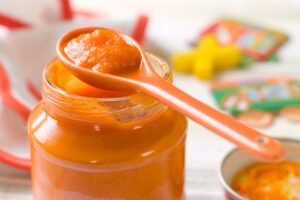I know how challenging it can be to make healthy choices while on the go, especially when it comes to snacks for your family. Bottled smoothies and to-go smoothies from cafes might seem like a great option for a quick and nutritious snack, but did you know that they could pose serious health risks? In this article, we’ll talk about the dangers of high sugar content and lack of essential nutrients in some bottled and to-go smoothies.
The Trouble with Sugar
One significant concern with many bottled and to-go smoothies is their high sugar content. Excessive consumption of added sugars can have negative health effects, and some smoothies contain far more sugar than what’s recommended by the American Heart Association. Consuming too much sugar can lead to obesity, type 2 diabetes, and heart disease, among other health problems.
The Risks of Too Much Sugar
Obesity is a significant risk of consuming excessive sugar. When we consume more calories than we burn through physical activity, our bodies store the excess energy as fat. Over time, this can result in significant weight gain and obesity, increasing the risk of numerous health problems, such as heart disease, stroke, and certain types of cancer.
High sugar intake is also strongly associated with the development of type 2 diabetes. Consuming excessive amounts of sugar can cause blood sugar levels to spike, which over time, can lead to insulin resistance. Insulin resistance is when the body’s cells do not respond properly to the hormone insulin, which regulates blood sugar levels.
As a result, blood sugar levels remain high, increasing the risk of developing type 2 diabetes. Excessive sugar consumption can also contribute to the development of heart disease in several ways, such as increasing levels of triglycerides in the blood and lower levels of high-density lipoprotein (HDL) cholesterol, commonly known as “good” cholesterol.
Watch Out for Tooth Decay
Sugar is also a leading cause of tooth decay, as it provides an energy source for the bacteria in our mouths. Regularly consuming high-sugar smoothies can exacerbate this problem, particularly if we do not maintain proper oral hygiene by brushing and flossing daily.
What About Nutrients?
In addition to high sugar content, many bottled and to-go smoothies lack essential nutrients, such as fiber and protein. Whole fruits and vegetables are excellent sources of fiber, but many bottled smoothies use only fruit juice, which lacks the fiber found in whole fruits and vegetables.
Also, many bottled and to-go smoothies lack protein, an essential nutrient that helps us feel full and satisfied after eating. A diet lacking in fiber can lead to digestive problems, such as constipation, while a diet lacking in protein can lead to muscle loss and weakness.
Healthier Alternatives
While bottled and to-go smoothies may seem like the easiest option, many healthier alternatives are available. For example, making your smoothies at home using fresh fruits and vegetables is an excellent way to ensure you consume a nutritious and healthy snack. Making smoothies at home also allows you to control the ingredients, including sugar and sweeteners.
Another alternative is to choose fresh smoothies from juice bars or cafes that use whole fruits and vegetables and do not contain excessive added sugars. Many juice bars offer a wide variety of healthy smoothie options, including those that are low in sugar and high in fiber and protein.
Be Mindful of Your Choices
When choosing a smoothie, being aware of the sugar content is essential. We’ve compiled a list of smoothies high in sugar that you should avoid or consume in moderation and a list of lower-sugar smoothie options that offer a healthier choice due to their fat and protein content.
So, fellow parents, next time you’re in a rush and craving a quick snack, be sure to consider the health risks of bottled and to-go smoothies. Instead, opt for healthier alternatives like making your smoothies at home or selecting fresh smoothies from juice bars that use whole fruits and vegetables and contain minimal added sugars. Remember, by being mindful of what we consume, we can make healthier choices and protect our health in the long run. Stay healthy, everyone!
References
- Harvard Health Publishing. “Fresh juice drinks, healthy as they seem?” Harvard Health Blog, 29 July 2016, https://www.health.harvard.edu/blog/fresh-juice-drinks-healthy-seem-2016072910044.
- American Heart Association. (2022). Sugar 101. Retrieved March 20, 2023, from https://www.heart.org/en/healthy-living/healthy-eating/eat-smart/sugar/sugar-101
- Naked Juice Company. (n.d.). Green Machine. Retrieved March 20, 2023, from https://www.nakedjuice.com/our-products/machines/green-machine/
- Malik, Vasanti S., et al. “Sugar-sweetened beverages and weight gain in children and adults: a systematic review and meta-analysis.” The American Journal of Clinical Nutrition, vol. 98, no. 4, 2013, pp. 1084-1102.
- Imamura, Fumiaki, et al. “Consumption of sugar-sweetened beverages, artificially sweetened beverages, and fruit juice and incidence of type 2 diabetes: systematic review, meta-analysis, and estimation of population attributable fraction.” BMJ, vol. 351, 2015, doi:10.1136/bmj.h3576.
- Yang, Quanhe, et al. “Added sugar intake and cardiovascular diseases mortality among US adults.” JAMA Internal Medicine, vol. 174, no. 4, 2014, pp. 516-524.
- Moynihan, Paula J., and Poul Erik Petersen. “Diet, nutrition and the prevention of dental diseases.” Public Health Nutrition, vol. 7, no. 1A, 2004, pp. 201-226.
- National Institutes of Health. (2021). Protein in the diet. Retrieved March 20, 2023, from https://medlineplus.gov/ency/article/002467.htm








